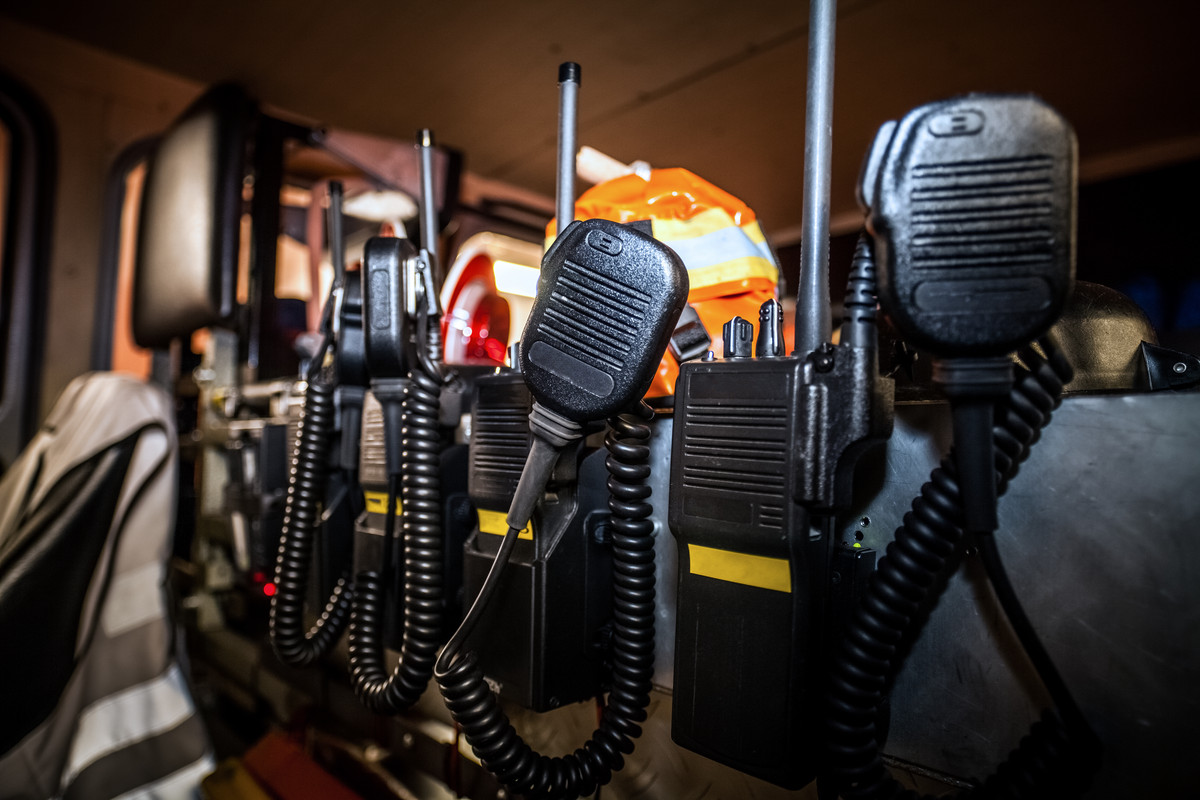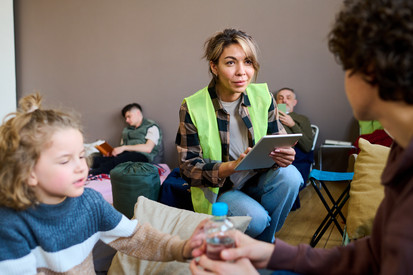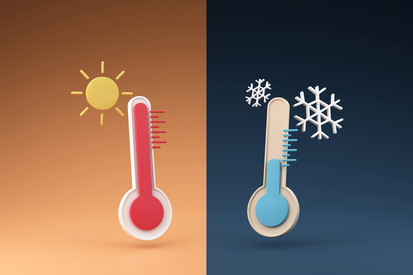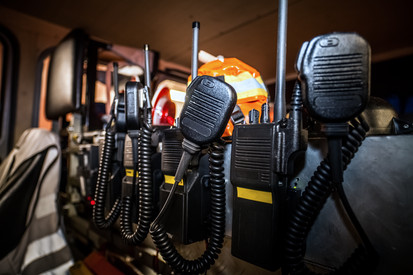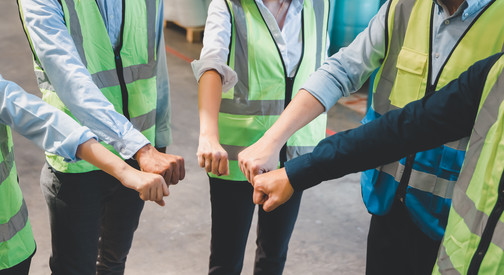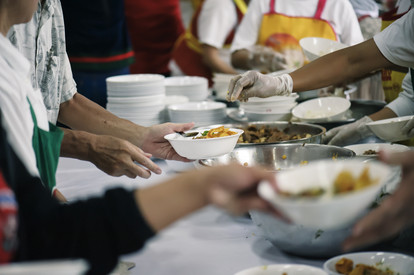Who has which task?
In times of disaster, the federal government, states, municipalities, together with relief organizations, share various responsibilities. There are many tasks in disaster management. The federal government (the government of Germany), the states and the municipalities (cities and municipalities) are responsible for different aspects:
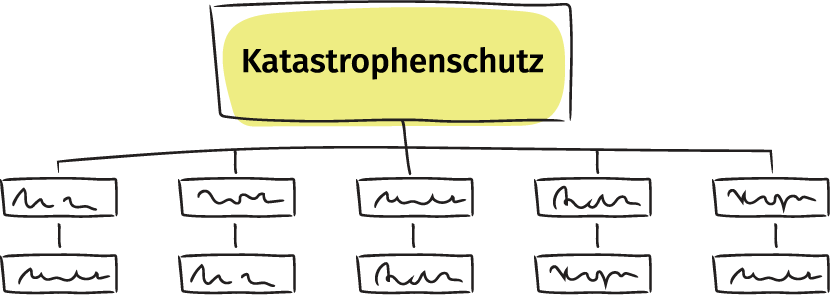
- The states and municipalities are responsible for measures to prevent or mitigate disasters and their consequences. This includes disaster management itself.
- The federal government is responsible for protecting the population in times of war.
In disaster management, the lowest level typically takes care of things locally. This means that what can be solved locally is also done locally. The larger the disaster, the higher the level of support or intervention. "Size" refers to both the affected area and the extent of damage.
How is it in Rhineland-Palatinate?
In Rhineland-Palatinate, municipalities are initially responsible for disaster management. The municipalities have their own authorities and protection plans for this purpose. These authorities, for example, warn the population and seek accommodations for people who need to be evacuated from disaster areas.

Crisis and Administrative Teams
The municipalities establish Technical Operations Centers and administrative staffs accordingly. These entities are only activated during disasters. They oversee and plan which authorities are responsible for what tasks. They decide what steps are necessary and how much money is needed. If municipalities cannot make decisions on their own, the crisis teams involve higher levels (such as the states or the federal government).
Fire departments are particularly important during disasters—and thus also in crisis teams. They are most familiar with the local situation.
What crisis teams plan:
- Who takes on which tasks? What are cities and municipalities responsible for? What about districts? What about the state government? And what about the federal government (for example, with the Federal Agency for Technical Relief)?
- How can authorities and organizations help each other?
Relief Organizations
During a disaster, various relief organizations are deployed.
The five relief organizations active in disaster management are united in the "Working Group of Relief Organizations in Disaster Management" (HiK-RLP). These include the Workers' Samaritan Federation, the German Life Saving Society, the German Red Cross, the Johanniter-Unfall-Hilfe, and the Malteser Hilfsdienst. The Ministry of the Interior is also represented.
The leadership group of relief organizations in disaster management in Rhineland-Palatinate is active during its own exercises and operations, as well as during disasters and conflict situations. It advises the respective local command center.
Five other central facilities are the Task Force unit of the Workers' Samaritan Federation, the water rescue units of the German Life Saving Society, the Central Supply Facility for Disaster Management (ZELK) operated by the German Red Cross, the Middle Rhine Regional Association of the Johanniter-Unfall-Hilfe, and the Malteser Disaster Relief Center.
Centralized Assistance
If a municipality needs support, the state of Rhineland-Palatinate provides assistance. For example, the state may support the planning of all available aid options, possibly involving the armed forces.
There is also the Joint Reporting and Situation Center of the Federal Government and the States (GMLZ). This belongs to the Federal Office of Civil Protection and Disaster Assistance. The GMLZ supports the federal states in times of major disasters. If this is not sufficient, the GMLZ can also request support from the European Commission.

Storage for Medicines and Medical Products
Normally, pharmacies and wholesalers store medicines themselves. However, for safety reasons, the state of Rhineland-Palatinate also has a total of eight warehouses for medicines and medical products. Additionally, there is a specialized depot for antidotes.
Federal Agency for Technical Relief (THW)
The THW is responsible for tasks related to technical humanitarian assistance. The THW rescues people and essential goods. This includes, for example, bridges and roads, drinking water, or rescue operations on water and in water.
The police
During disasters, the police ensure public safety. They also regulate traffic and provide assistance wherever needed.
